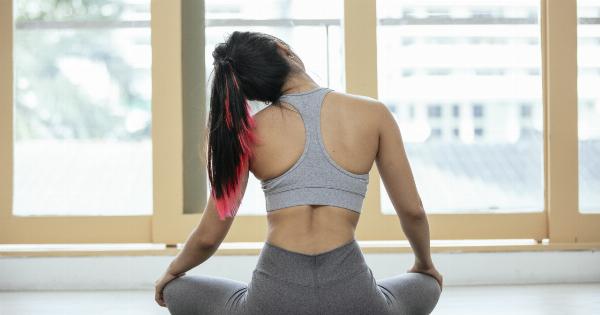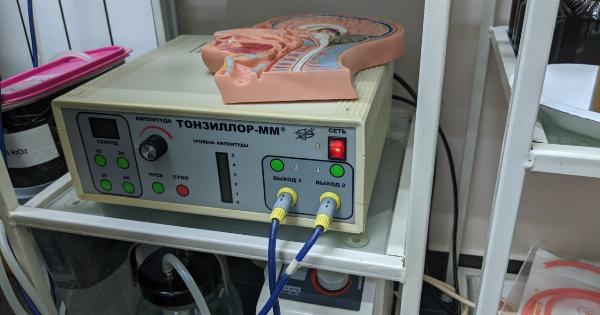Cervical syndrome, also known as cervical spondylosis or neck arthritis, is a common condition that affects the neck. It is caused by wear and tear of the cartilage and bones in the cervical spine, which results in pain and stiffness.
While it can be a chronic condition, there are exercises that can help relieve symptoms and improve neck strength and flexibility. In this article, we will discuss fast and easy cervical syndrome exercises that you can incorporate into your daily routine.
1. Neck Rotation
The neck rotation exercise helps to improve flexibility and mobility in the neck. To perform this exercise, sit or stand with your back straight and shoulders relaxed. Slowly turn your head to the right, as far as comfortable, and hold for a few seconds.
Then, slowly turn your head to the left and hold again. Repeat this exercise 5-10 times on each side.
2. Neck Tilt
The neck tilt exercise stretches the muscles in the neck and helps to relieve tension. Start by sitting or standing with your back straight and shoulders relaxed. Tilt your head to the right, bringing your right ear towards your right shoulder.
Hold for a few seconds and then return to the neutral position. Repeat on the left side. Perform this exercise 5-10 times on each side.
3. Chin Tuck
The chin tuck exercise strengthens the muscles in the front of the neck and can help improve posture. Start by sitting or standing with your back straight and shoulders relaxed. Gently tuck your chin in towards your chest, as if making a double chin.
Hold for a few seconds and then release. Repeat this exercise 5-10 times.
4. Shoulder Rolls
Shoulder rolls help to relieve tension in the neck and shoulders. Sit or stand with your back straight and shoulders relaxed. Roll your shoulders forward in a circular motion, making sure to keep your neck relaxed.
Perform 10-15 shoulder rolls in a forward direction and then reverse the direction for another 10-15 rolls.
5. Head Lifts
Head lifts are a strengthening exercise for the neck muscles. Lie flat on your back on a firm surface, such as a yoga mat or carpet. Slowly lift your head off the ground, using your neck muscles to do the work.
Hold for a few seconds and then gently lower your head back down. Repeat this exercise 5-10 times.
6. Scalene Stretch
The scalene stretch targets the muscles on the sides of the neck. Sit or stand with your back straight and shoulders relaxed. Reach your right hand over your head and place it on the left side of your head.
Gently pull your head towards your right shoulder until you feel a stretch in the left side of your neck. Hold for a few seconds and then release. Repeat on the other side. Perform this stretch 5-10 times on each side.
7. Levator Scapulae Stretch
The levator scapulae stretch targets the muscle that connects the neck to the shoulder blades. Sit or stand with your back straight and shoulders relaxed. Reach your right arm behind your back and place your hand on the left side of your lower back.
Tilt your head to the left and bring your left ear towards your left shoulder. Gently pull your head down with your left hand until you feel a stretch in the right side of your neck. Hold for a few seconds and then release. Repeat on the other side. Perform this stretch 5-10 times on each side.
8. Seated Upper Trapezius Stretch
The seated upper trapezius stretch targets the muscle that runs from the neck to the shoulder. Sit on a chair with your back straight and shoulders relaxed. Place your right hand under your right thigh to anchor your shoulder down.
Tilt your head to the left and bring your left ear towards your left shoulder. Gently pull your head down with your left hand until you feel a stretch in the right side of your neck. Hold for a few seconds and then release. Repeat on the other side. Perform this stretch 5-10 times on each side.
9. Scapular Squeezes
The scapular squeezes exercise helps to strengthen the muscles between the shoulder blades. Stand or sit with your back straight. Squeeze your shoulder blades together, as if trying to hold a pencil between them. Hold for a few seconds and then release.
Repeat this exercise 10-15 times.
10. Upper Back Extensions
Upper back extensions target the muscles in the upper back and can help improve posture. Stand with your feet shoulder-width apart and place your hands on your lower back, fingers pointing downwards.
Gently lean back, arching your upper back and looking upwards. Hold for a few seconds and then return to the upright position. Repeat this exercise 5-10 times.

























